FIELD JOURNAL – HONDURAS & NICARAGUA
FROM EFICO’S GREEN COFFEE TRADERS JEAN & RENAUD
One of the benefits of having a local foothold is that you have the best local intel and guides. Front row seats when it comes to green coffee knowledge, coffee insights, coffee quality and hospitality. Lucky for all of us at EFICO and very nice for our customers. Because every now and then we take our roasters in tow to visit the local suppliers and projects together.
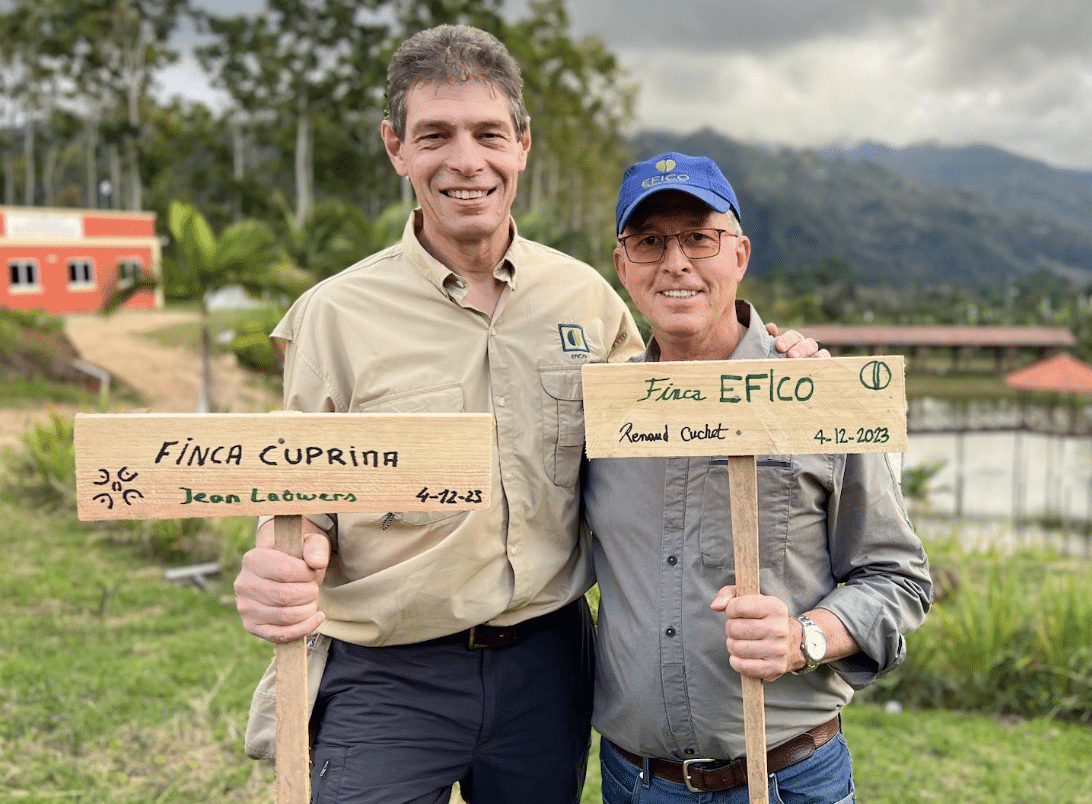
A few weeks ago, EFICO’s seasoned green coffee traders Jean Lauwers and Renaud Cuchet were the hosts. With some passionate coffee roasters in their wake, they crossed Nicaragua and Honduras. Their aim was to engage with the local team, to catch up with the coffee producers, discuss the current state of affairs and gain first-hand insight into the coffee production process. This period -the peak of the coffee harvest season- is buzzing with activity and provides a unique opportunity to witness the intricacies of the coffee harvest.
FIELDTRIP HONDURAS & NICARAGUA | ITINERARY
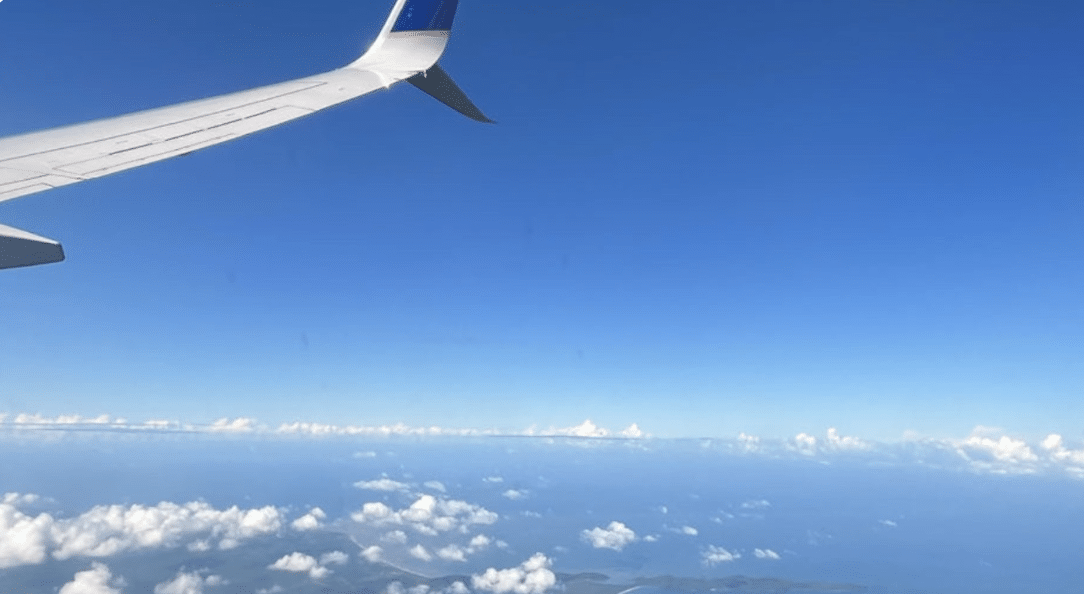
°HONDURAS°
Jean and Renaud landed in San Pedro Sula, Honduras´ largest economic center near the Atlantic Coast. San Pedro Sula concentrates most of the large Honduran coffee exporters because of the proximity to the port of Puerto Cortes, one of the busiest maritime hubs in Central America. Honduras is by far, the largest coffee producer and exporter in Central America.
The next day, they drove straight to the Western region of Honduras where about 40% of the harvest is collected and where the best Honduran coffees are grown: mainly Strictly High Grown quality, above 1200 meters of altitude. This is where EFICO sources most of our quality coffees in Honduras. It was a long trip, most of the roads in Honduras have suffered damage because of weather and lack of maintenance.
The harvest was just starting and delayed because of several cold fronts and rains. When it rains too much, the coffee pickers cannot go out in the fields. However, the situation stabilised soon after.
Jean and Renaud visited the EFICO suppliers in Capucas and Corquin, with whom we have a long-term relationship in our sourcing program for high quality and responsibly grown coffee. The picking of cherries was under way, and they witnessed the wet mills processing the beans.
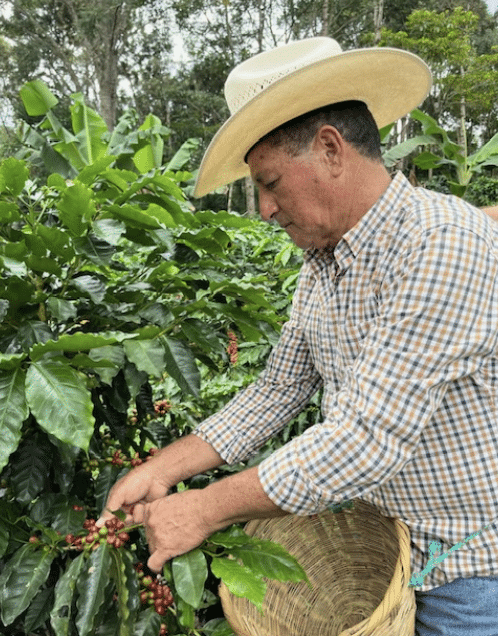
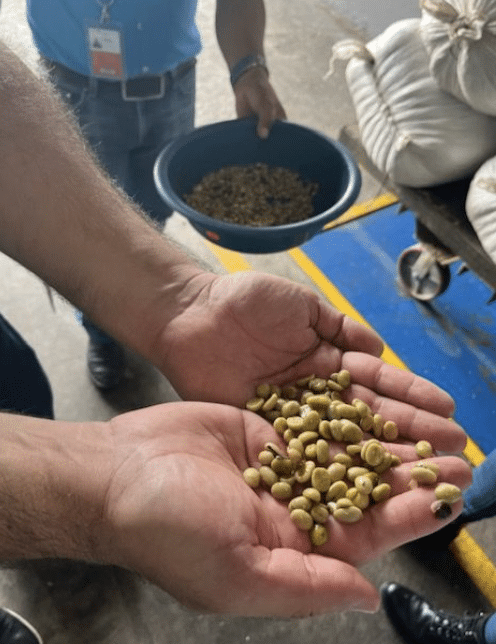
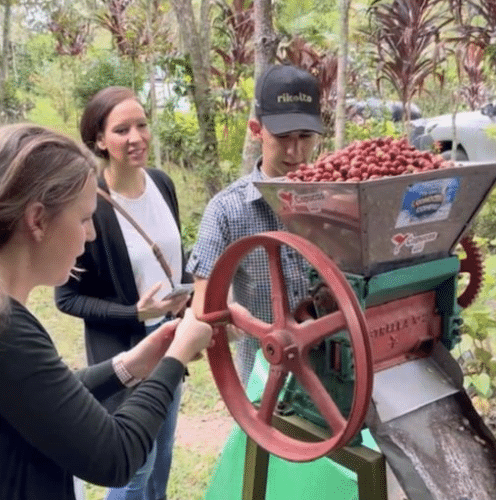
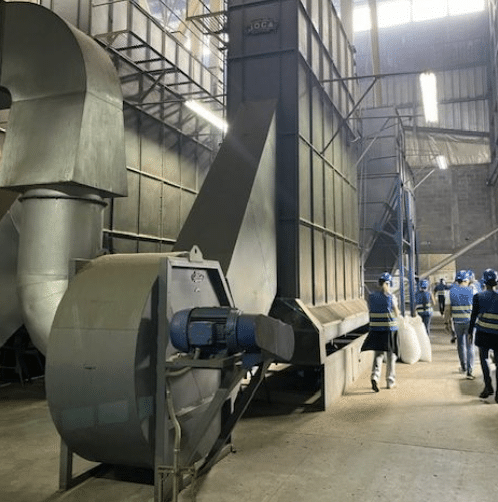
°NICARAGUA°
After a very early departure from San Pedro Sula, Jean and Renaud arrived in Managua, the country´s capital city. They drove immediately to the coffee regions in Northern Nicaragua. The first night, they stayed in a mountain resort in the middle of a coffee farm in Matagalpa: Selva Negra.
The EFICO suppliers in Matagalpa were already very busy with the progress of the harvest, and the preparation of the December religious celebration ‘La Gritería’*, December 7th. Farm owners always organise special activities for the permanent workers and pickers on this special occasion, with a free meal which consists of ‘nacatamales’ (first picture below) -traditional Nicaraguan tamale made with corn dough, which is stuffed with chicken or pork, then wrapped in plantain leaves and steamed.
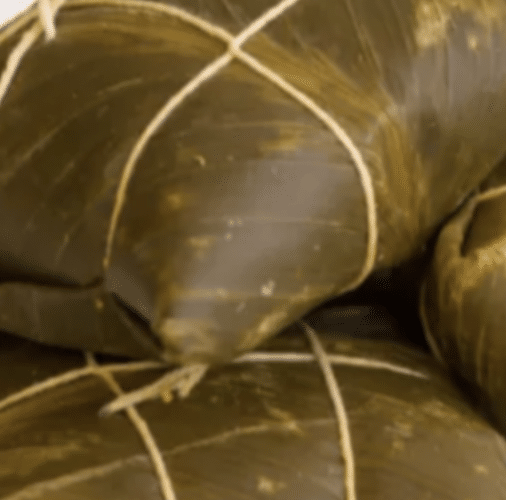
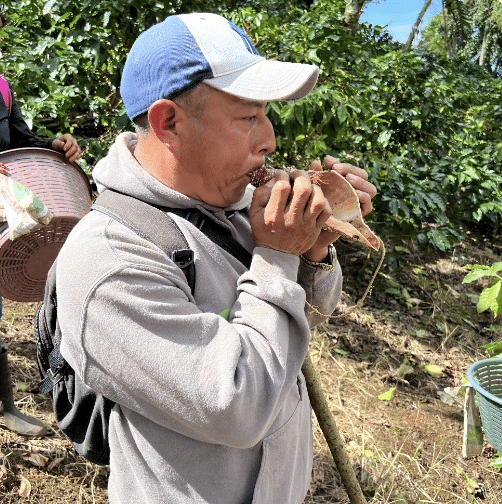
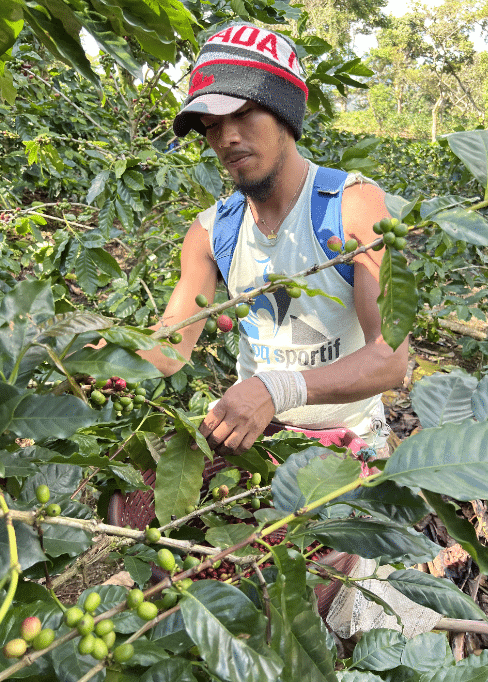
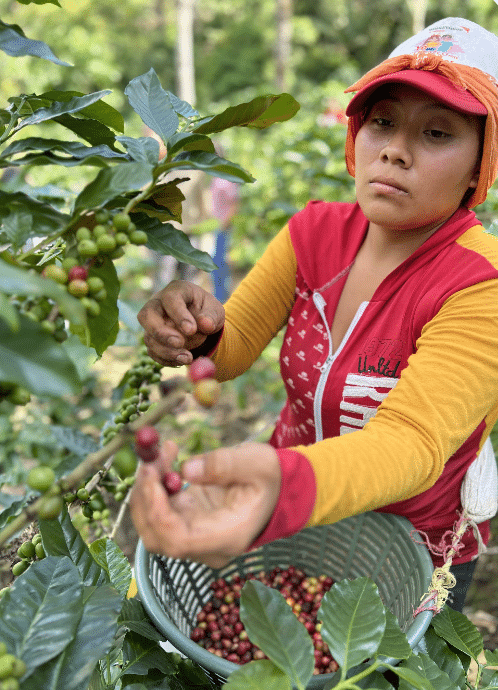
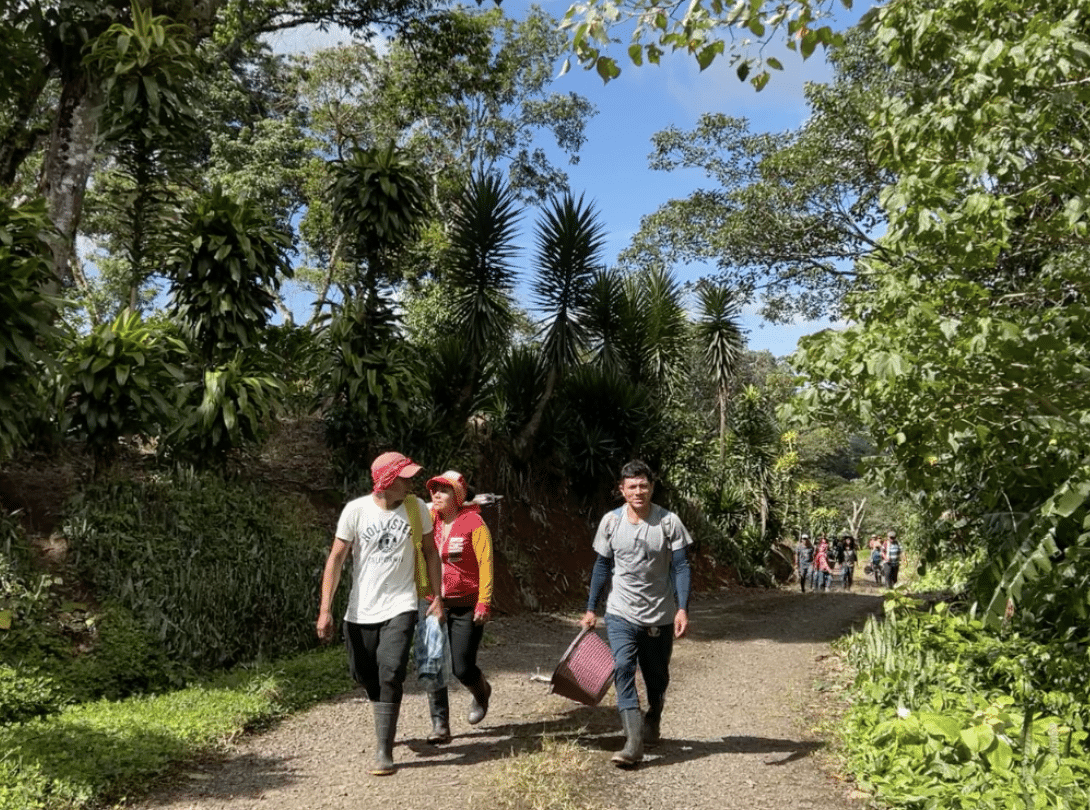
Although the harvest started earlier than usual in Nicaragua, the same adverse events (Honduras) also affected the country in December (unexpected rains), which paused the coffee picking. There were also some issues with the drying of the coffee, since most of this activity is done on open-air patios in Nicaragua (sun drying).
There was a lot of nervousness among the coffee community because of the unexpected bankruptcy of the largest coffee exporter in Nicaragua, handling about 25% of the country´s volume. The news came a few days before Jean and Renaud arrived. There were rumours of many coffee producers who could not continue to pick coffee in their farms because of lack of funds and a general disruption of the cash flow system on the local market.
“We are fortunate to work with solid suppliers in Nicaragua, who have a strong financial backbone,” says Jean Lauwers – green coffee trader at EFICO in Antwerp, “allowing them to continue their operations without interference. We are happy to say that this situation has not affected us commercially.”
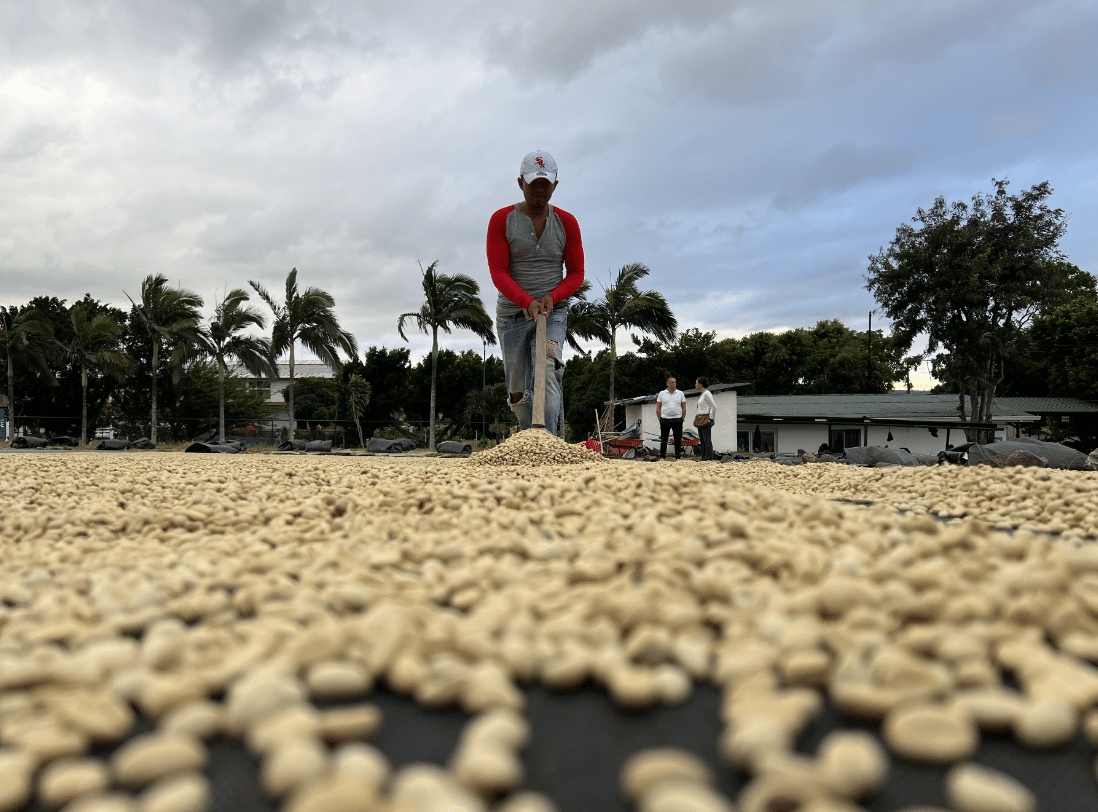
What are the expectations of the new crop?
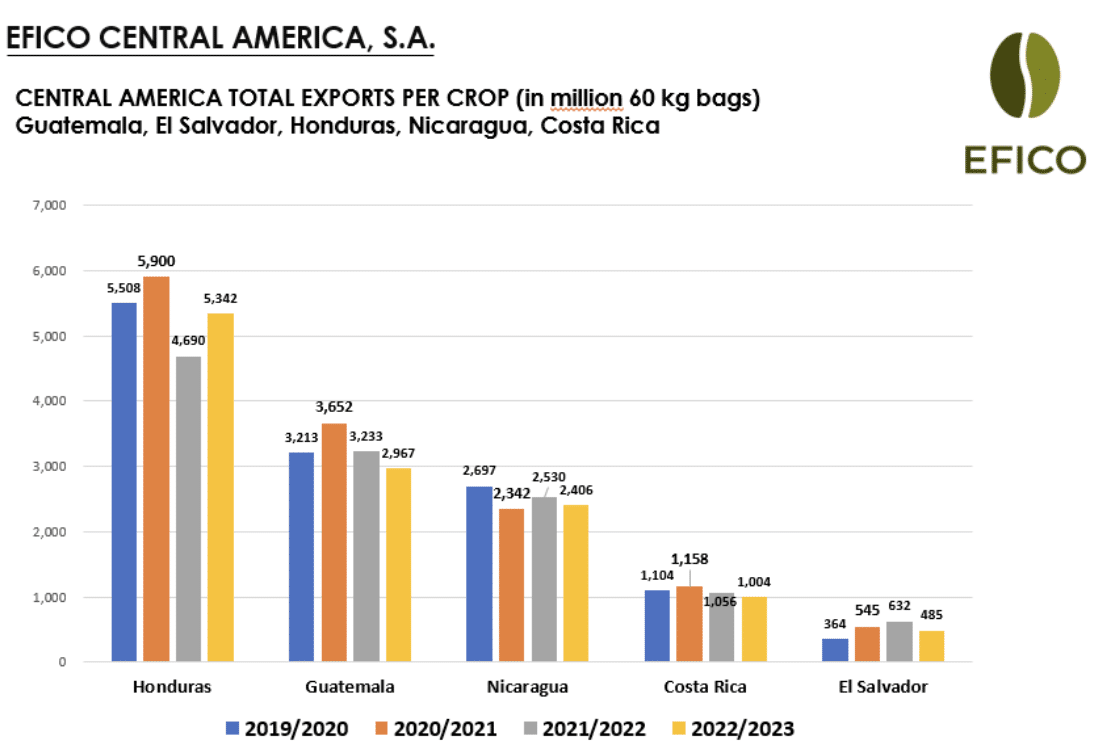
Renaud Cuchet -EFICO’s Central America´s Manager, based in Guatemala says: “For the 2023/24 harvests, Honduras will probably reduce the output by 10% (off-year after a good recovery in 2022/23), and Nicaragua should be stable in comparison with the previous harvest. However, predictions based on agronomist forecasts are not always accurate, since many other factors can occur during the harvest and can affect the final figures: weather events, availability of pickers and road/transportation network conditions,…
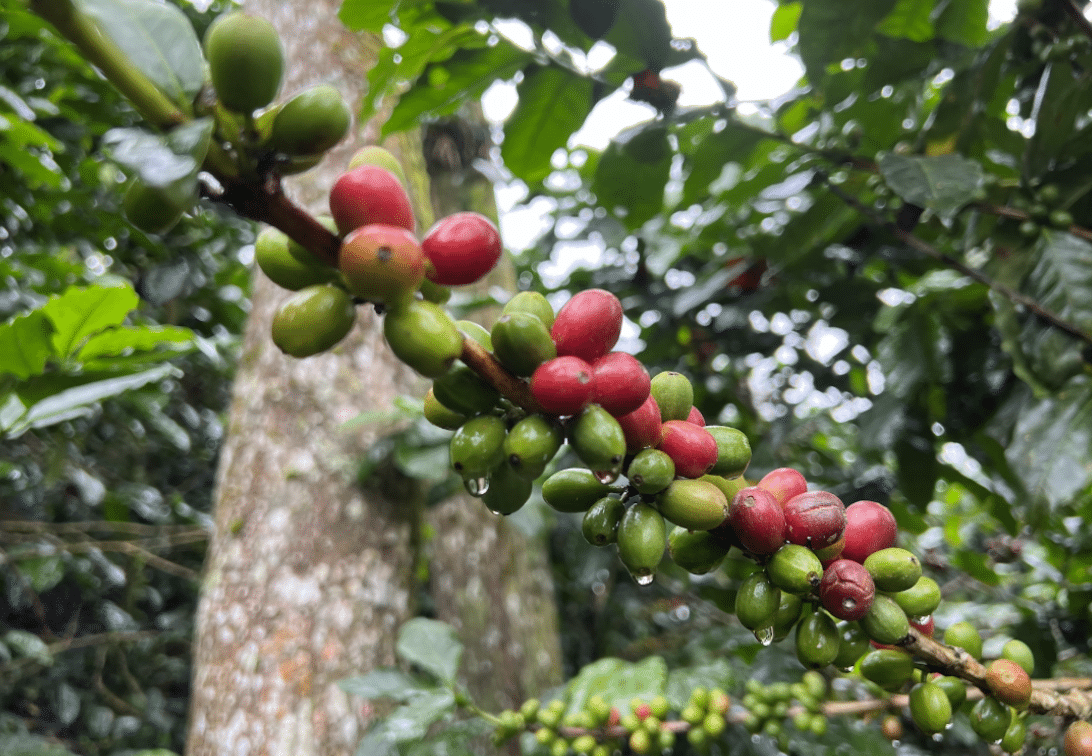
What are the challenges farmers/producers in Honduras and Nicaragua are facing at the moment?
Renaud comments: “A common issue for all producers in Central America is the low availability of coffee pickers. Due the lack of work opportunities, many Central American rural families have migrated to the United States, leaving a void for the agricultural and low-qualified jobs in the region. The coffee picking activity is threatened by this phenomenon. At the same time, migrants who work in the USA send monthly remittances to their families back home, challenging the minimum wages on coffee farms and the profitability of the farmers, who often need to pay above the minimum wage, so they can hire pickers.
Jean adds “Since 2021, there have been a combination of factors contributing to higher production costs for farmers, who are not always able to transfer these costs in their selling price: higher interest rates, higher cost of fertilisers (Ukraine) and inputs (transportation costs).”
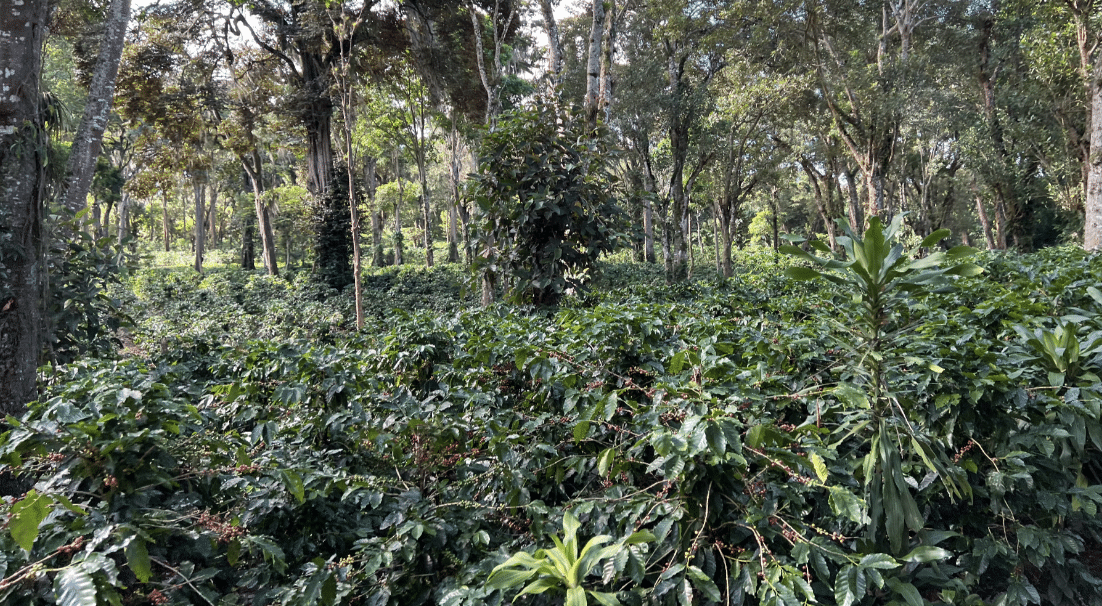
What specific insights & feedback did you gain during this trip?
Renaud explains: “Each coffee harvest is different from the previous one. And our suppliers risk assessment too! This year, the current context of high inflation and interest rates has led to a decline in coffee demand for most origins, leading to a quick reduction of differentials and coffee prices on local markets. Honduras and Nicaragua are no exception. Only the most efficient producers will be able to maintain their farms in the long term.”
Jean adds “Most EFICO suppliers have understood that their only way forward is based on adapting to modern production techniques and accurate cost keeping. The use of new coffee varieties and agronomical practices have become vital so that they can remain efficient and resilient to climate change, rust, pests, coffee diseases and low price cycles.”
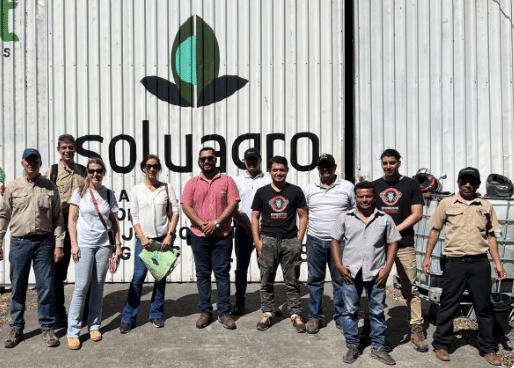
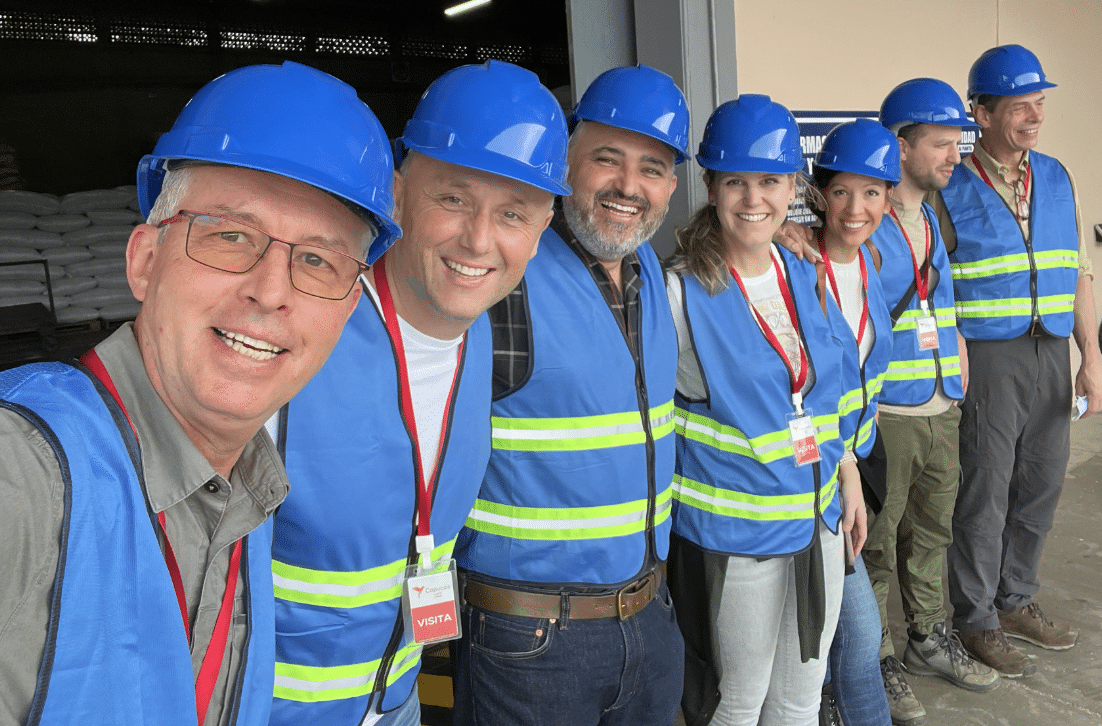
Have you taken the opportunity to exchange views with local producers about the EU Deforestation Regulation (EUDR – effective end of 2024) and what EFICO’s proposed approach is in this regard? What are the take-aways?
Renaud: “As a coffee importer, we really feel that there is a ‘race’ in the coffee sector to meet the EURD requirements by December 2024. The new regulations force our suppliers to enter a new level of traceability and control of their supply chains. We are actively working on it.”
!!! The good news is that the EFICO suppliers that Jean and Renaud visited in Honduras and Nicaragua are very sensitive to the new deforestation regulations and have started active steps towards compliance -traceability, geolocation of plots via GPS location and polygons. Our colleagues were impressed by the willingness of the companies they visited.
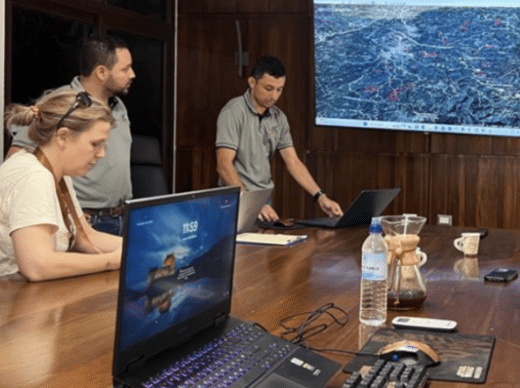
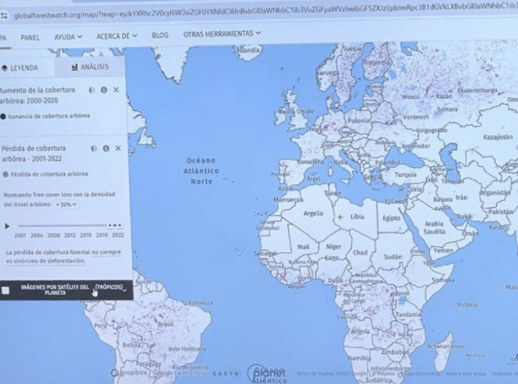
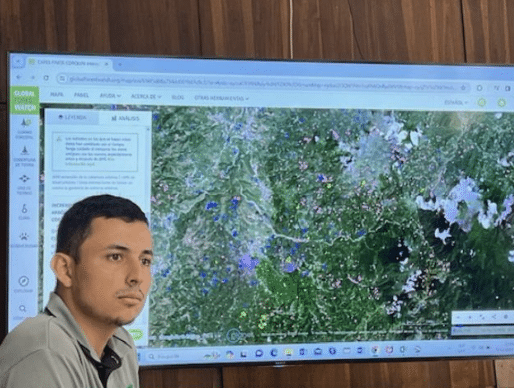
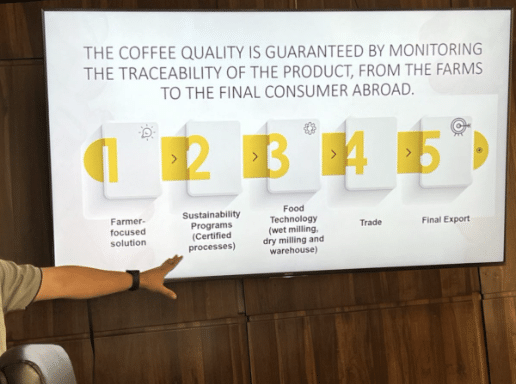
Jean continues: “We are currently working together with each one of our suppliers, to verify their ability to comply with the EUDR initiative. We know it is a big challenge, and some of them might not be able to comply immediately. But we are here to support them through our Central America office, based in Guatemala”.
Renaud explains: “There are still many unknown elements to the EUDR regulation: no availability yet of benchmarking deforestation data in Jan 2020, doubts about the due diligence requirements for the coffee harvested between Jun 23 and Jan 24. Who will bear the cost of data collection? -many small producer organisations do not have the financial resources to collect the information. What kind of control mechanisms will be enforced to avoid data corruption and leakage of information? Nonetheless, as Jean says “ EFICO is determined to keep on working towards the compliance of our supply chains and to support exporters and cooperatives in the process.”
Renaud continues: “I am happy to say that I am part of the EFICO Sustainable Sourcing Team for Latin America, in charge of working together with the company’s suppliers towards the EUDR standard. Our Belgian headquarters have also onboarded an additional sustainability specialist to guide and manage the entire process for our global origin, so that EFICO can offer full compliance guarantees to their roasters. In the meantime, this has become a real team effort, even our international coffee traders are part of the process now.”
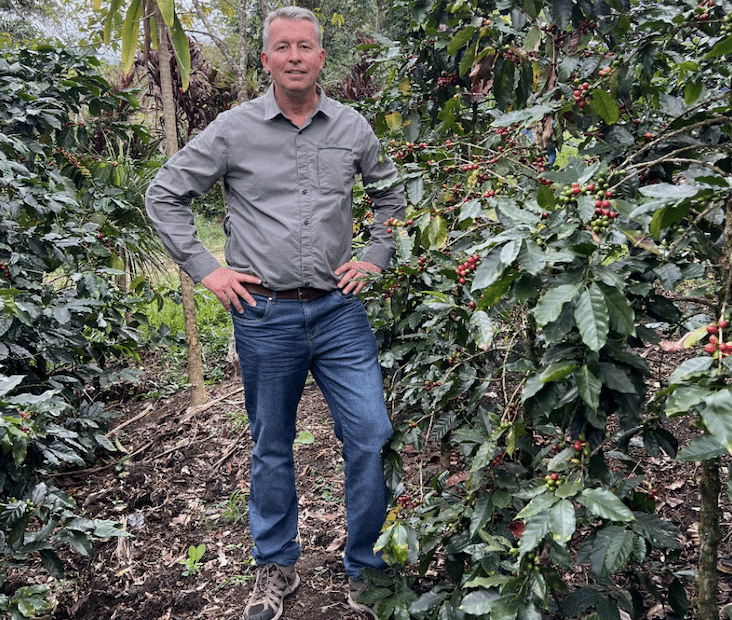
Why is it interesting for roasters to visit the origins? What is their feedback, what insights can origin trips bring them? And why do we at EFICO think it is important?
Jean clarifies: “Each coffee trip to the origin is an eye opener. It is one of the best ways to feel the reality of the coffee world and to transfer our knowledge and experience of the origins to our customers”.
Renaud adds “EFICO´s unique model of origin offices in Ethiopia, Brazil and Central America has helped us gain valuable insights into our suppliers and understanding of the local market. It is an added value for our company but especially for its stakeholders. Therefore, we invite our customers to join us on origin trips, so that we can share our experiences with them.”
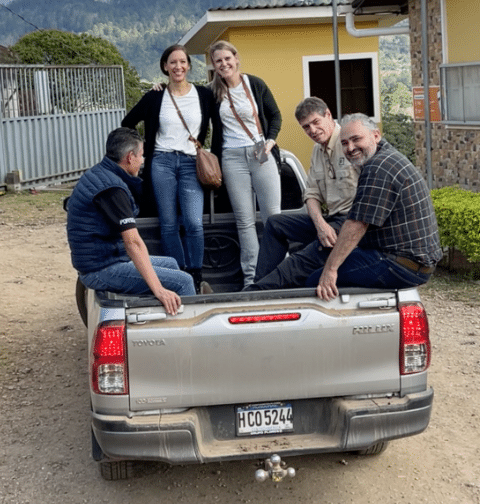
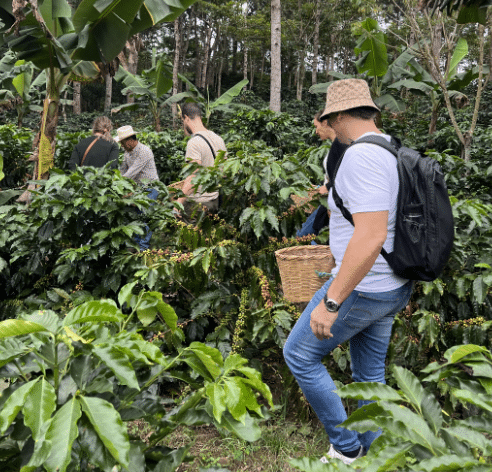
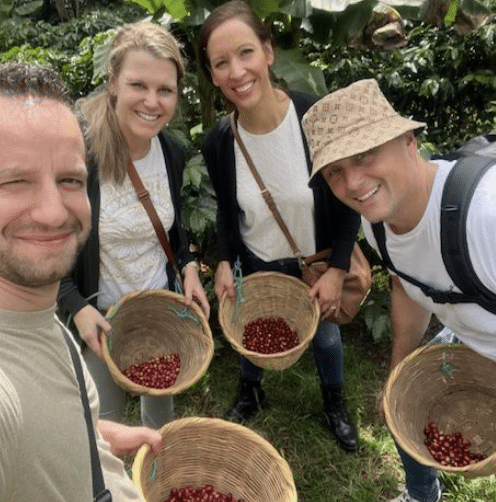
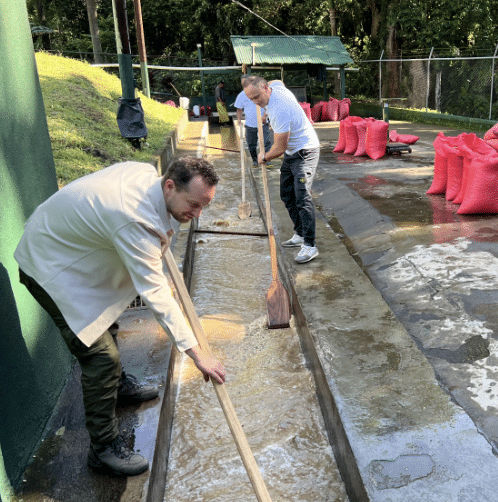
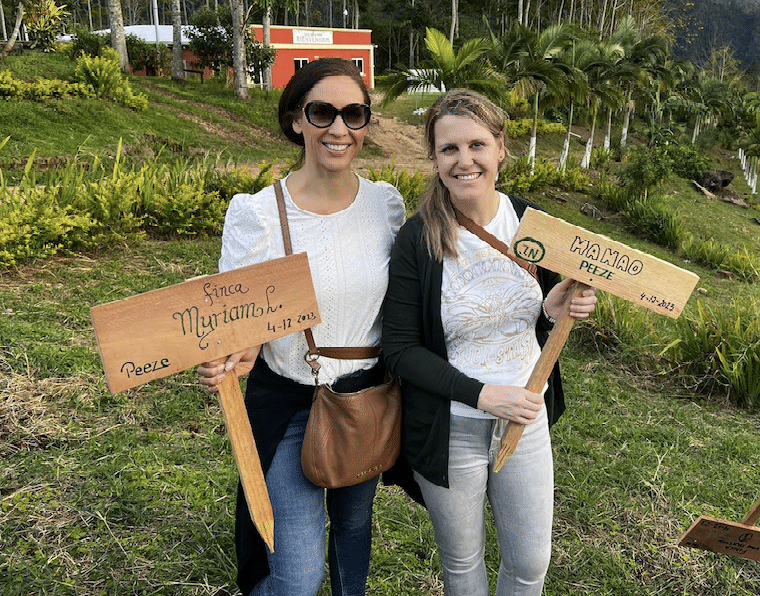
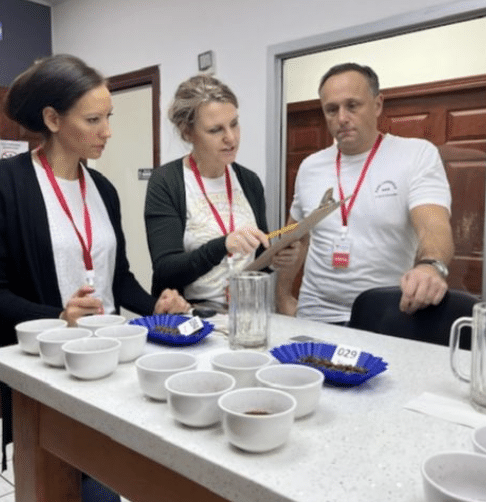
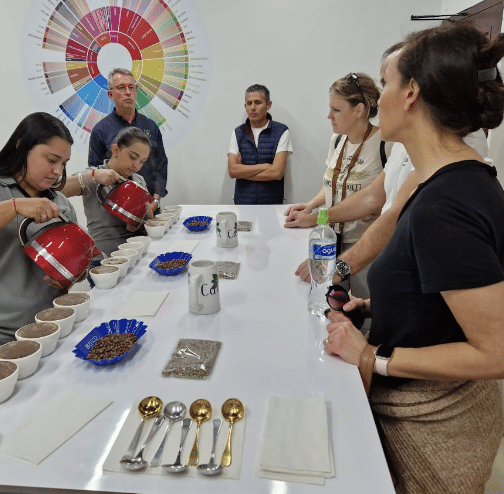
ORIGIN SNAPSHOTS HONDURAS & NICARAGUA
In the realm of coffee, Central America stands out for its remarkable flavours, ranging from intense sweetness to fruity richness and chocolatey abundance.
Honduras and Nicaragua, two prominent coffee producers in Central America, contribute significantly to the global coffee market. Honduras accounts for around 5% of the world coffee market, while Nicaragua holds a share of about 2.2%.
Despite the differences in market share, both countries are celebrated for offering high-quality and intricate flavours, catering to the preferences of coffee enthusiasts worldwide.
°HONDURAS°
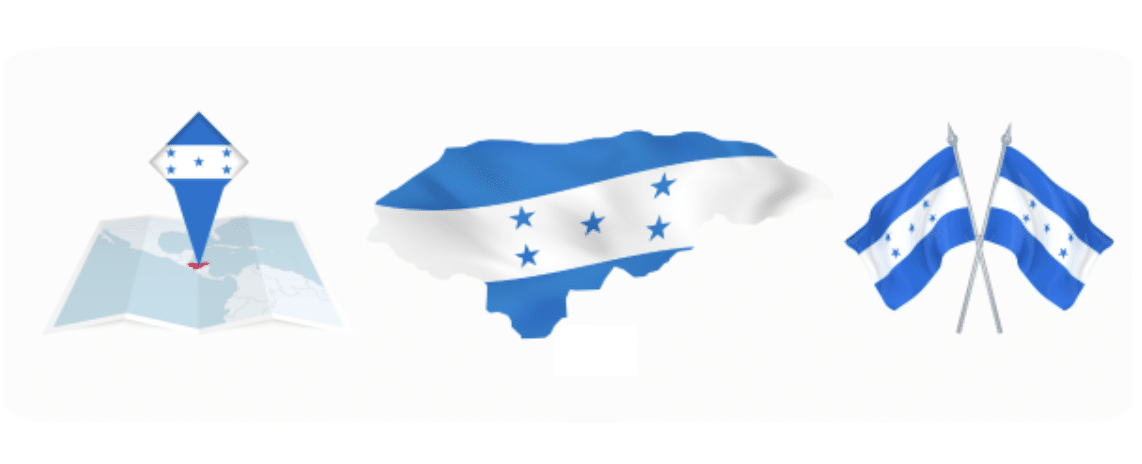
Honduras has positioned itself as the leading coffee producer in Central America, owing its success to efficient land use, government support, and the dedication of its producers. With a historical reliance on coffee and bananas as key exports, Honduras has witnessed substantial growth in coffee production since the mid-2000s. By the 2014/2015 crop year, it became Central America’s top grower, reaching the seventh position globally with over 5 million bags of Arabica coffee.
In the past, Honduras was perceived as a low-price commodity exporter, lagging behind its Central American counterparts in specialty coffee production. However, strategic government interventions, including a coffee export tax and infrastructure improvements, have transformed the industry. More than 100,000 families, primarily small-scale farmers, are now engaged in coffee production, with 70% farming on less than 2 hectares.
Despite challenges, such as the aftermath of Hurricane Mitch in 1998 and the coffee leaf rust crisis in 2011/12, Honduras has successfully revitalised its coffee sector. The average age of producers has decreased, defying the aging trend seen in other Central American coffee-producing regions. This is attributed to the efforts of the Honduran Coffee Institute (IHCAFE), which provides support through investment, promotion, technical assistance, and access to low-interest loans.
Initiatives like the Appellation of Origin and participation in the Cup of Excellence program have bolstered Honduras’ reputation for exceptional coffee. The country’s commitment to innovation is evident in encouraging the use of polytunnels and solar dryers to address challenges posed by high rainfall. Overall, Honduras showcases a dynamic and thriving coffee industry, poised to unlock further potential in specialty coffee production.
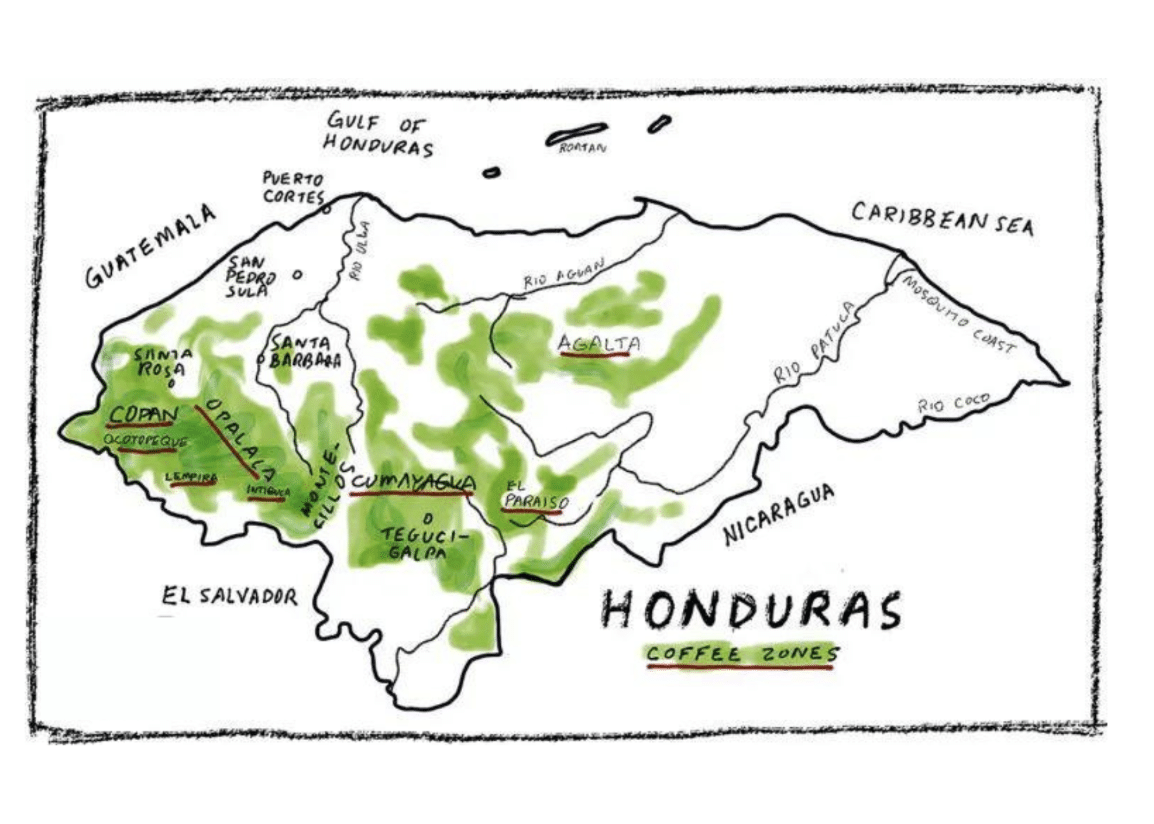
FACTS & FIGURES
- Global Export Rank: 4th
- Percentage of world coffee market : 5%
- Coffee produced by smallholders: 95%
- Sacks (60kg) exported annually : approx: 6,765,000
- Other major agricultural exports : bananas, pineapples, other fruits & vegetables
- Estimated number of families relying on coffee for livelihood : 120,000
- Typical varieties produced : Caturra, Catuai, Pacas, Typica & (increasingly) Lempira, IHCAFE-90 & Parainema (Sarchimor type)
- Key coffee regions : Copán, Montecillos, Agalta, Opalaca, Comayagua, & El Paraiso
- Typical harvest times : November – April
- Typically available : From May
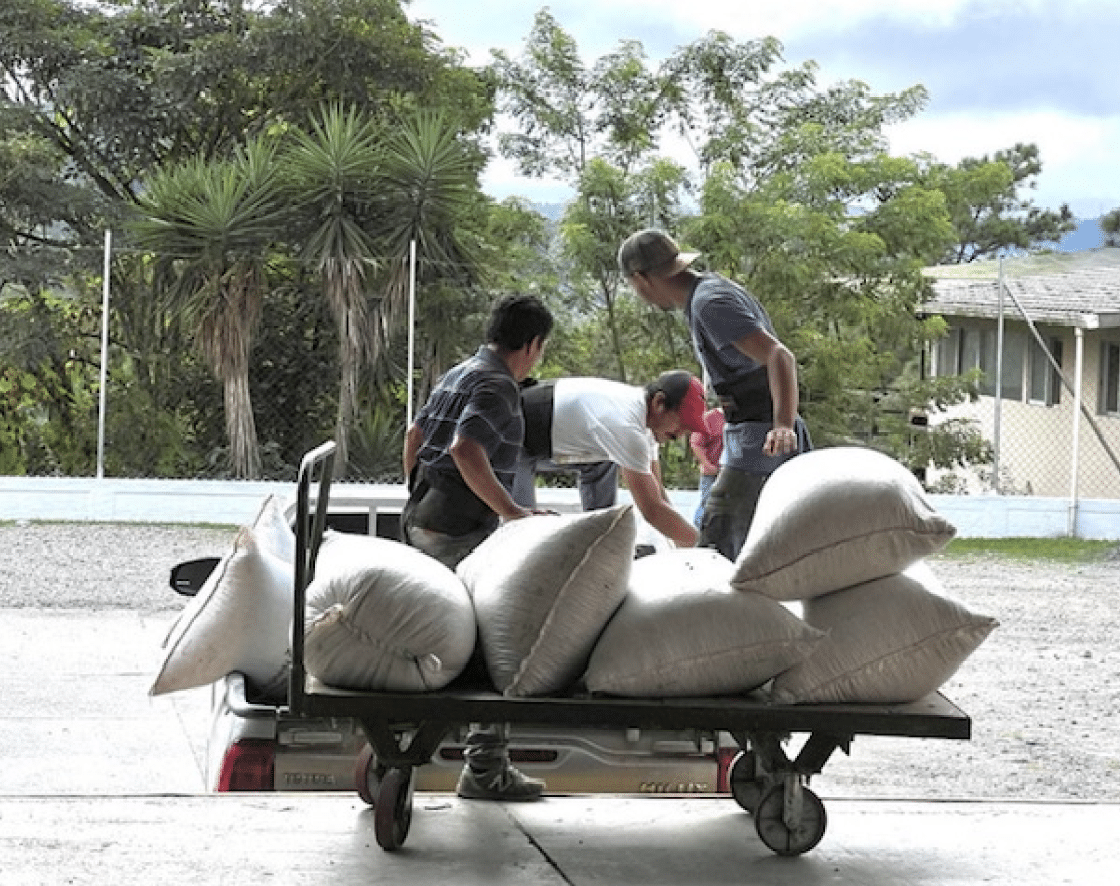
Thanks to EFICO’s Central American headquarters, EFICO has access to some local Honduran gems from all different regions and with all possible labels/certifications: Fairtrade, Rainforest, Organic, Rainforest Organic, …
If you’re looking for a unique coffee experience, Honduran coffee beans are worth exploring. With a distinct flavour profile, notes, and a wide variety of growing areas, there’s something for everyone. And if you’re not sure where to start, we’ve got you covered!
°NICARAGUA°
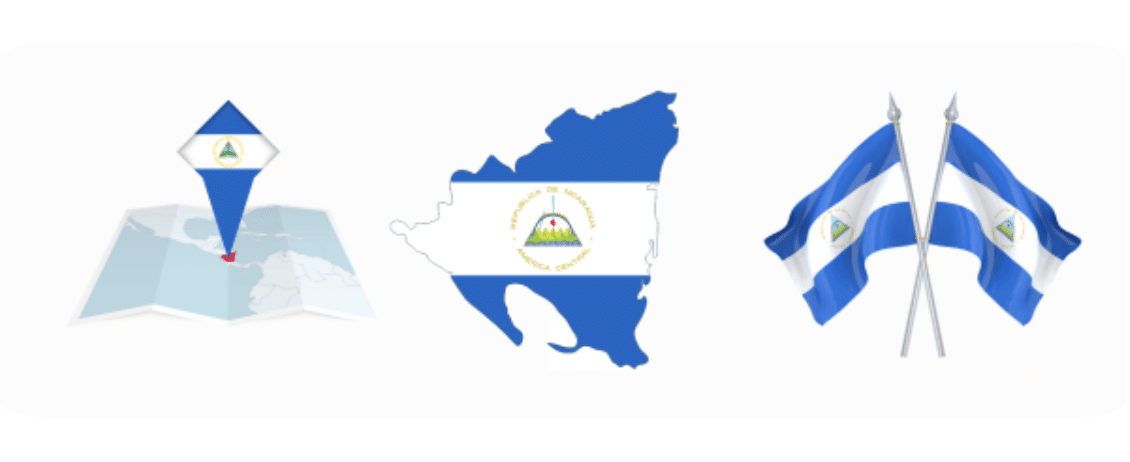
Nicaragua, amidst a troubled history, is establishing itself as a key player in the coffee industry. Coffee, introduced in the 1800s, now stands as Nicaragua’s primary export, contributing over $448 million annually and supporting more than 200,000 jobs. The journey was tumultuous, marked by political unrest, civil war, and natural disasters, including the Sandinista regime’s mismanagement and the devastation caused by Hurricane Mitch and the coffee crisis of 1999-2003.
Despite these challenges, Nicaragua is making strides in social welfare and coffee production, seen as a vital factor in rural development. Visionary farmers, along with initiatives like the Cup of Excellence and the Nicaraguan Specialty Coffee Association, are emphasizing coffee quality. Production is concentrated in Matagalpa and Jinotega, with various processing methods employed, and efforts are underway to address challenges such as weather conditions and transportation infrastructure.
Nicaragua, despite being one of the poorest countries in the Western Hemisphere, possesses ideal conditions for coffee growth due to its rich volcanic soil. With ongoing government support and improvements in infrastructure, the country holds immense potential for producing high-quality coffee, showcasing a resilient industry determined to overcome past setbacks.
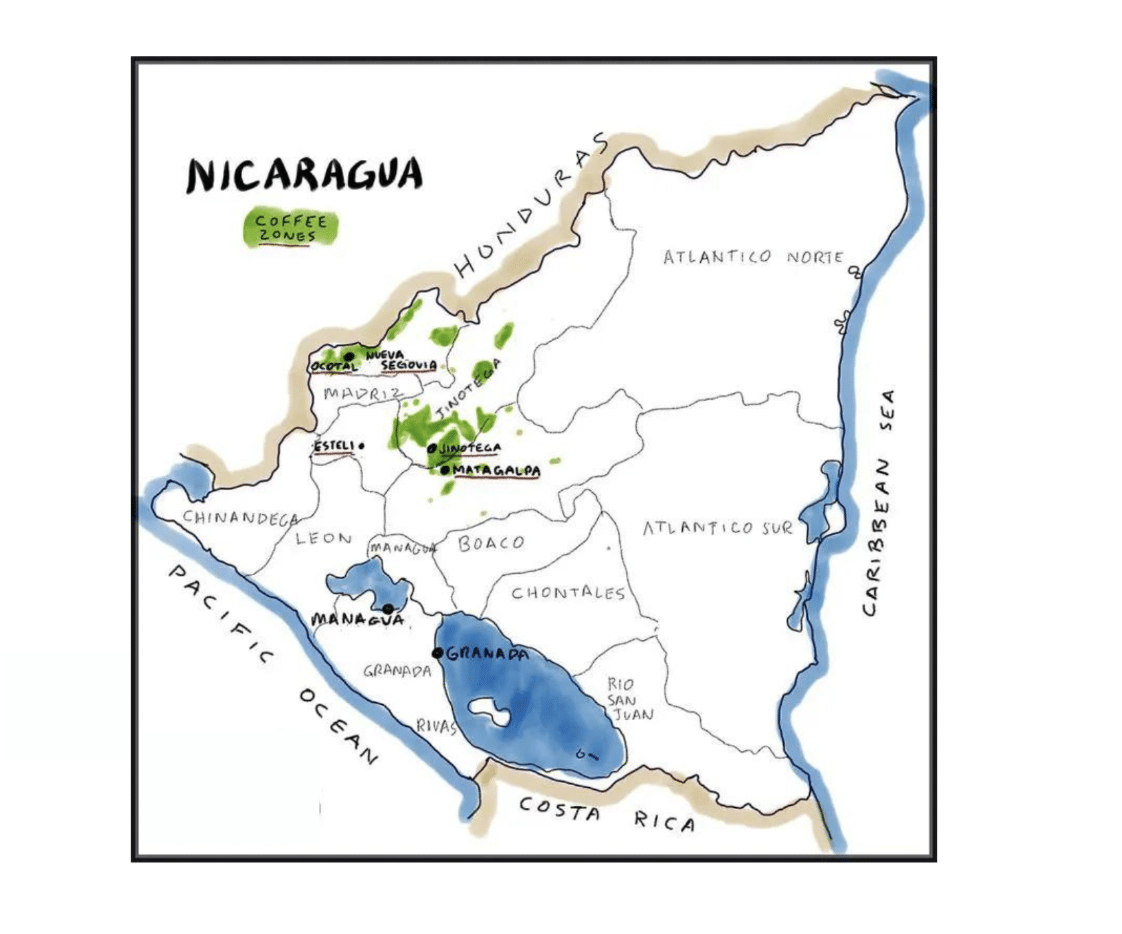
FACTS & FIGURES
- Global Export Rank: 11th
- Percentage of world coffee market : 2,2 %
- Coffee produced by smallholders: 50%
- Sacks (60kg) exported annually : approx: 2,954,000
- Other major agricultural exports : sugar, peanuts, bananas, and beans
- Estimated number of families relying on coffee for livelihood : more than 40,000
- Typical varieties produced : Bourbon (Caturra), Pacamara, Catimor, Maracaturra, Red Catuaí, and Yellow Catuaí.
- Key coffee regions : Matagalpa, Jinotega, Estelí Madriz and Nueva Segovia
- Typical harvest times : December – March
- Typically available : May
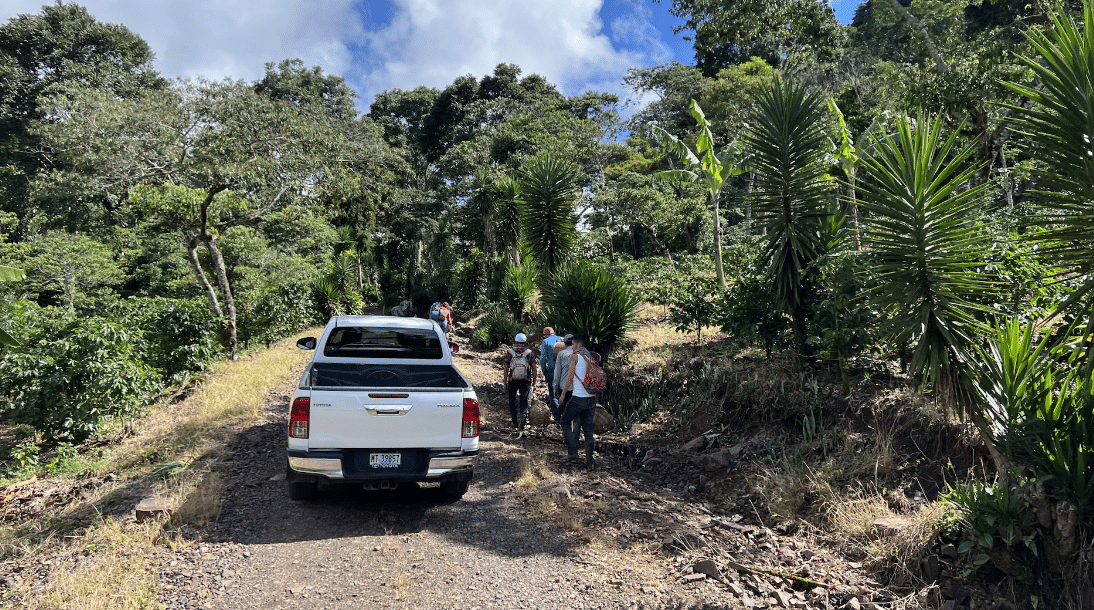
Thanks to EFICO’s Central American headquarters, EFICO has access to some local Nicaraguan gems from all different regions and with all possible labels/certifications: Fairtrade, Rainforest, Organic, Rainforest Organic, …
If you’re looking for a unique coffee experience, Honduran coffee beans are worth exploring. With a distinct flavour profile, notes, and a wide variety of growing areas, there’s something for everyone. And if you’re not sure where to start, we’ve got you covered!
ACKNOWLEDGEMENTS & REFERENCES
Thank you, Renaud Cuchet – EFICO Centram & Jean Lauwers – EFICO Antwerp for the intel & organisation
Thank you, Myriam, Janneke, Mark & Rik – Koffiebranderij Peeze for your enthusiasm & pictures.
